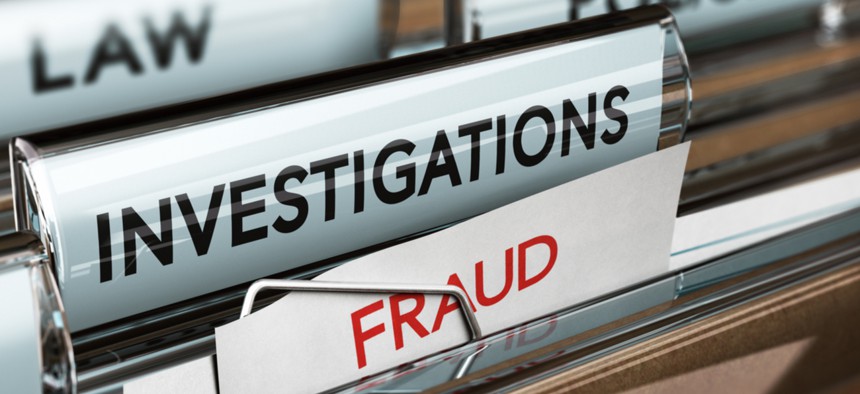Viewpoint: Rising Suspensions and Debarments Among Federal Contractors Is Good News for Taxpayers
In 2019, the Labor Department issued 125 suspensions and 130 debarments, a significant increase over the last several years combined.
Benjamin Franklin once said, “There is no kind of dishonesty into which otherwise good people more easily and frequently fall than that of defrauding the government.” That’s probably because people often forget that the ultimate victim of such fraud is not some faceless, faraway bureaucracy. It’s taxpayers like you and me.
The Labor Department does business with thousands of entities every year. We spend billions of dollars to help Americans obtain and maintain good, family-sustaining jobs. When we do business with individuals and companies we have a duty to remember that it’s taxpayer dollars we’re spending and we must spend them responsibly. We take that duty very seriously.
Unfortunately, some people and companies engage in illegal or otherwise inappropriate conduct, including fraud. Those are unacceptable business partners. The department is committed to keeping taxpayer money away from entities with irresponsible business practices.
The good news is that federal agencies have several tools we can use to protect government programs from fraudsters. Among these tools are suspensions and debarments, which allow the government to stop entities from doing business with not only the Labor Department, but the entire federal government when necessary to protect it from harm. At Labor, suspension is usually temporary, pending a full investigation, and debarment usually lasts three years.
Every fiscal year since 2009, the department has sent suspension and debarment numbers to a committee at the Office of Management and Budget charged with keeping track of bad actors the government should avoid. During the previous administration, the department’s suspension activity was minimal. From 2009 to 2016, the department imposed five suspensions; zero debarments were issued from 2010 to 2015.
Under President Trump’s leadership, Labor has significantly strengthened its suspension and debarment program. Between 2016 and 2017, we increased the number of suspensions from zero to eight, and debarments from one to 17. In 2018, we imposed a total of 21 suspensions and 15 debarments.
To build on this momentum and save more taxpayer money from going to irresponsible business partners, we also started a pilot program to make the suspension and debarment process more efficient. We took the first step in December 2018, when our inspector general and the secretary of Labor signed protocols to enhance information sharing between the IG’s office and the agency that handles our discretionary suspensions and debarments. This increase in cooperation has reduced the time required to process suspension and debarment referrals from the IG. That same month, we embarked on an effort to streamline suspension and debarment reviews across all departmental agencies. We also placed more employees on the suspension and debarment team, which has allowed us to process multiple referrals at the same time.
This pilot program has helped us more effectively identify problems in need of action. In 2019, we issued 125 suspensions and 130 debarments, a many-fold increase from the last several years combined. Our enhancements to this process have made us better at hiring honest people and upstanding businesses to put taxpayer dollars to work.
The goal isn’t to punish contractors, and we don’t measure success based on the number of actions taken. Rather, our intent is to reduce business risk and protect taxpayers from the waste and abuse caused by bad actors—something we haven’t been well positioned to do in the past. We’re no longer turning a blind eye to dishonesty. After all, as Benjamin Franklin would say, “Honesty is the best policy.”
Patrick Pizzella is the Deputy Secretary of Labor.



